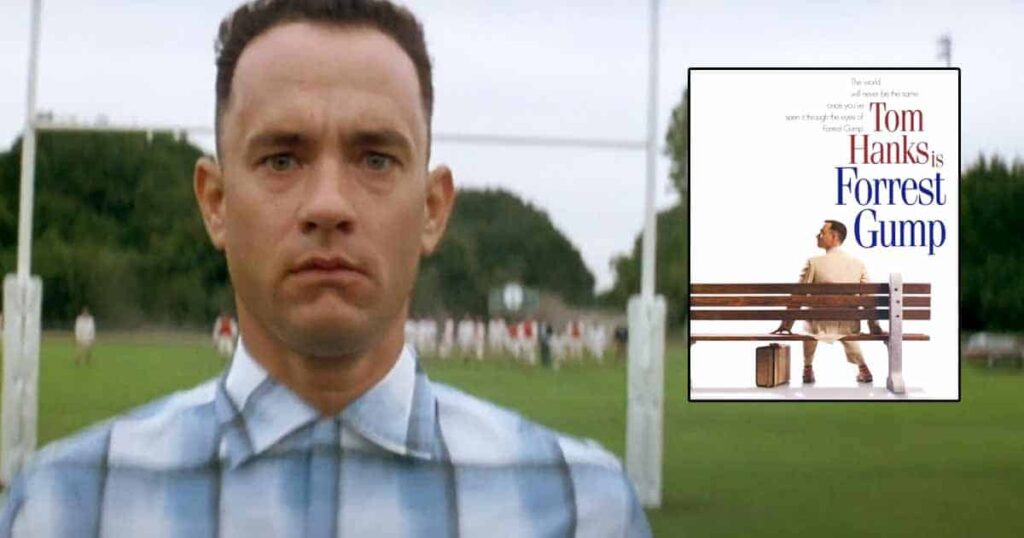Forrest Gump, a cinematic masterpiece directed by Robert Zemeckis and starring Tom Hanks, has left an indelible mark on the world of film. Released in 1994, the narrative follows the extraordinary life of Forrest, a man with a low IQ, who inadvertently becomes a participant in significant historical events. While the character engages with real historical figures and moments, it’s crucial to recognize that ‘Forrest Gump’ is a fictional work of art. Drawing inspiration from Winston Groom’s 1986 novel, the film expertly weaves a tale that captures the imagination and hearts of audiences globally.

This unique blend of fiction and history is one of the film’s defining features. Zemeckis’s direction not only brought Groom’s narrative to life but also introduced viewers to a character whose simplicity and purity resonated on a profound level. Tom Hanks’s portrayal of Forrest Gump, a performance that earned him an Academy Award for Best Actor, further solidified the character’s place in cinematic history.
‘Forrest Gump’ transcends its fictional roots, becoming a cultural touchstone. Iconic quotes, such as ‘Life is like a box of chocolates,’ have become ingrained in popular discourse, and the film’s impact extends far beyond the silver screen. As we explore the question of its true-story origins, it becomes clear that the magic of ‘Forrest Gump’ lies in its ability to touch the human spirit, offering a narrative that, while not based on real events, feels remarkably authentic and timeless.
Key Points about “Forrest Gump”:
- Fictional Story: “Forrest Gump” is not based on a true story but is a fictional narrative.
- Character Interactions: The protagonist, played by Tom Hanks, interacts with real historical figures, adding a unique twist.
- Inspired by Novel: The movie is based on the 1986 novel by Winston Groom, who created the character and storyline.
- Historical Events: The film creatively weaves its story around major historical events from the 1950s to the 1980s.
- Tom Hanks’s Performance: Tom Hanks’s portrayal of Forrest Gump earned him critical acclaim and an Academy Award for Best Actor.
Comparison Table: “Forrest Gump” – Fact vs. Fiction
| Aspect | Fact or Fiction? |
|---|---|
| Story Origin | Fiction |
| Character’s Name | Forrest Gump |
| Historical Figures | Real (interacted with) |
| Source Material | Novel by Winston Groom |
| Awards | Tom Hanks won an Academy Award for Best Actor |
Production and Critical Reception: Behind the scenes, the production of “Forrest Gump” was a meticulous process that involved creative collaboration and technological innovation. The film’s use of groundbreaking visual effects, such as seamlessly integrating Tom Hanks into historical footage, garnered praise for its technical achievements. Director Robert Zemeckis’s vision, coupled with the remarkable performances of the cast, contributed to the film’s critical acclaim. Notably, the film received multiple Academy Awards, including Best Picture, Best Director, and Best Adapted Screenplay, in addition to Tom Hanks’s well-deserved Best Actor win.
Cultural Impact and Enduring Legacy: “Forrest Gump” resonated deeply with audiences, not just for its narrative and performances but also for its exploration of American history and societal values. The film’s impact extends to various aspects of popular culture, influencing everything from catchphrases to fashion. Its soundtrack, featuring timeless classics, further solidified its place in the hearts of viewers. The enduring legacy of “Forrest Gump” is evident in its continued relevance, as new generations discover and appreciate its storytelling brilliance.
Historical Accuracy vs. Creative License: While “Forrest Gump” creatively incorporates real historical events, it’s essential to understand the balance between entertainment and historical accuracy. The film takes artistic liberties, altering timelines and events for narrative coherence. Exploring this dynamic can provide a nuanced perspective, appreciating how creative storytelling can bring historical themes to a wider audience while acknowledging the divergence from factual timelines.




